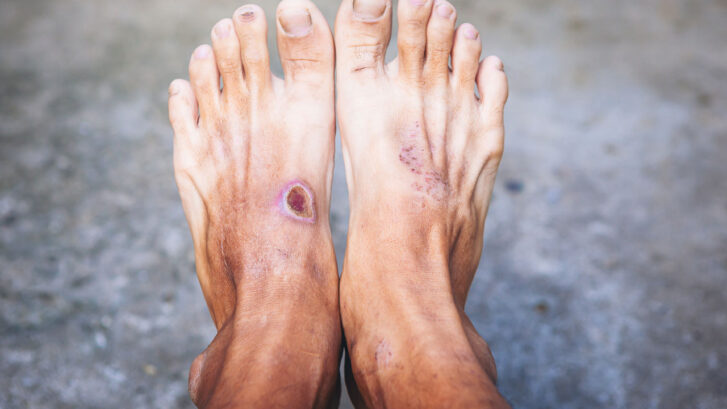Diabetes is a chronic condition that can lead to various foot problems if not managed properly. It is caused by high blood sugar levels, which can damage the nerves and blood vessels in the body. It can lead to several foot problems that can be prevented with proper foot care and blood sugar management. In this blog, we will discuss some tips and strategies that can help you prevent foot problems associated with diabetes.
Foot Care: Daily Habits for Healthy Feet
Proper foot care is essential for preventing foot problems in diabetes. This includes washing your feet daily with warm water and soap, drying them thoroughly, and checking for cuts, sores, or blisters. It is important to trim your toenails straight across and file the edges to prevent ingrown nails. Wearing shoes that fit properly and avoiding going barefoot can also reduce the risk of injuries and infections.
Diabetic Neuropathy: Understanding the Nerve Damage
Diabetic neuropathy is a condition in which high blood sugar levels damage the nerves in the body. It can cause tingling, numbness, and pain in the feet and legs, making it difficult to sense injuries or infections. To prevent diabetic neuropathy, it is important to maintain healthy blood sugar levels through a balanced diet, regular exercise, and medication. If you have already developed neuropathy, managing your blood sugar levels can help prevent further damage to the nerves. It is also important to check your feet daily for cuts, blisters, or sores and seek medical attention if you notice any changes.
Blood Sugar Management: The Key to Preventing Complications
Maintaining healthy blood sugar levels is crucial for preventing foot problems in diabetes. This includes monitoring your blood sugar regularly and making lifestyle changes, such as eating a balanced diet, exercising regularly, and taking medication as prescribed. Controlling high blood pressure and cholesterol levels is also important for reducing the risk of complications.
Foot Infections: Preventing and Treating Infections
Diabetic Foot infections are common, especially those with neuropathy and peripheral artery disease. They can be caused by small cuts or injuries that go unnoticed due to reduced sensation in the feet. To prevent foot infections, it is important to check your feet daily for cuts, blisters, or sores, wash your feet with warm water and soap, and keep them dry. Early treatment can prevent the infection from spreading and causing serious complications.
Amputation: Understanding the Risks and Prevention
Amputation is a serious complication of diabetes that can result from untreated foot ulcers or infections. To prevent amputation, it is important to take good care of your feet and manage your blood sugar levels. This includes checking your feet daily for cuts, blisters, or sores, wearing shoes that fit well, and avoiding going barefoot. It is also crucial to maintain healthy blood sugar levels through a balanced diet, regular exercise, and medication. If you notice any signs of foot ulcers or infections, seek medical attention immediately to prevent complications. Dr. Ravul Jindal is an experienced vascular surgeon and can help you with your diabetic foot-related concerns.
In conclusion, diabetes can lead to various foot problems that can have serious consequences, such as amputation. By taking good care of your feet and managing your blood sugar levels, you can reduce your risk of developing these complications and maintain good foot health. Contact us for more information on how to maintain good foot health.


